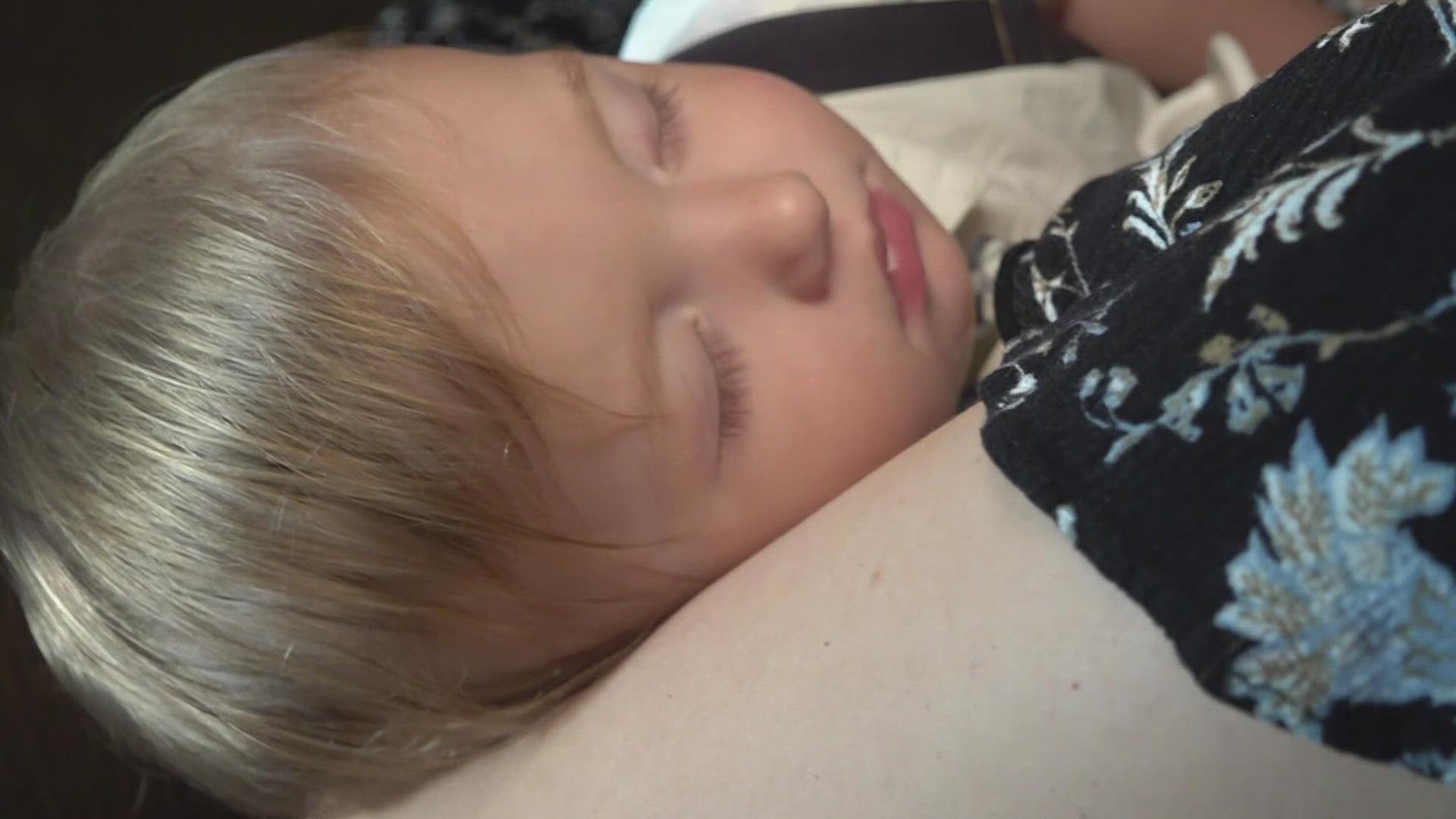NEW ORLEANS — As south Louisiana prepared for the arrival of a storm last year, Shawn Sievers in Terrebonne Parish was preparing for another arrival.
“Planning for a hurricane, having a baby,” Sievers said as she laughed.
August 27th, two days before Hurricane Ida hit Louisiana, Sievers, already in early labor, went to see her doctor.
“She said, ‘Ok we need to have this baby today or you’re going to have this baby in this category four hurricane,’” Sievers said.
Later that night, at 8:26, baby Elijah Louviere arrived. The birth was routine, but doctors realized Elijah had jaundice.
“He needed what’s called phototherapy, where they laid him underneath a light to basically give him artificial sun,” Sievers said.
That meant mom and baby stayed put at Terrebonne General Health System in Houma. Elijah’s dad went to prepare their Dulac home. It wasn’t long until the hospital went on lockdown.
“It was really scary honestly,” Sievers said. “I was afraid. There was one point where the whole hospital shook.”
Sievers and Elijah were among about 150 patients inside, many of them with COVID. There were about a dozen newborns.
“Ida was nothing any of us expected,” CEO of Terrebonne General Health System Phyllis Peoples said. “We rode out many, many hurricanes throughout my career time but this one was different.”
The storm knocked out electricity and water, forcing Peoples to make a decision.
“When we had to make the call to evacuate, that was probably one of the harder things I’ve ever done in my career,” Peoples said.
Peoples say the hospital had no way to communicate with families. Patients were sent wherever space was available. Unable to be cared for, Sievers and two-day-old Elijah were sent home.
“They physically could not care for him anymore. They had told us that we just needed to do our best and get him in the sun and with this heat down here, you can’t leave a baby in the sun for very long,” Sievers said.
Grateful for the care during the storm, caring for Elijah outside the hospital was more challenging than expected.
“The next morning, we got up and we looked at the baby and we noticed how yellow his skin was and then we noticed how yellow his eyes were,” Sievers said.
The family packed up and headed to Texas to stay with family and find medical care for Elijah. Before getting to Lafayette, they ran out of gas. Then came the kindness of a stranger who had gas containers in his truck.
“He put the whole ten gallons in my car and said, ‘Ya’ll get that baby somewhere safe because he doesn’t look good,’” Sievers said.
That kind act helped get them to a hospital in Texas but even that came with concern. Elijah didn’t have a birth certificate or social security card.
“We were like, ‘Ok, if something goes down, he’s not a person,’ so when we got to Texas we were extremely protective,” Sievers said.
Protection gave way to relief once Elijah was well enough to go home.
“I’m lucky that he’s alive,” Sievers said. “I was scared, desperately scared, when we left out of here thinking that he wasn’t going to make it at some points because he wouldn’t cry, he wouldn’t wake up, he wouldn’t eat.”
A year later, Elijah just celebrated his first birthday, and his birth announcement finally made it to the hospital’s billboard. Those are celebrations Sievers can’t help but smile about.
“We always joke and say he did right coming with the hurricane because he is a hurricane. He is drama. He is outgoing. He is fun and I am the luckiest mom on the face of the planet,” Sievers said.
► Get breaking news from your neighborhood delivered directly to you by downloading the new FREE WWL-TV News app now in the IOS App Store or Google Play.

